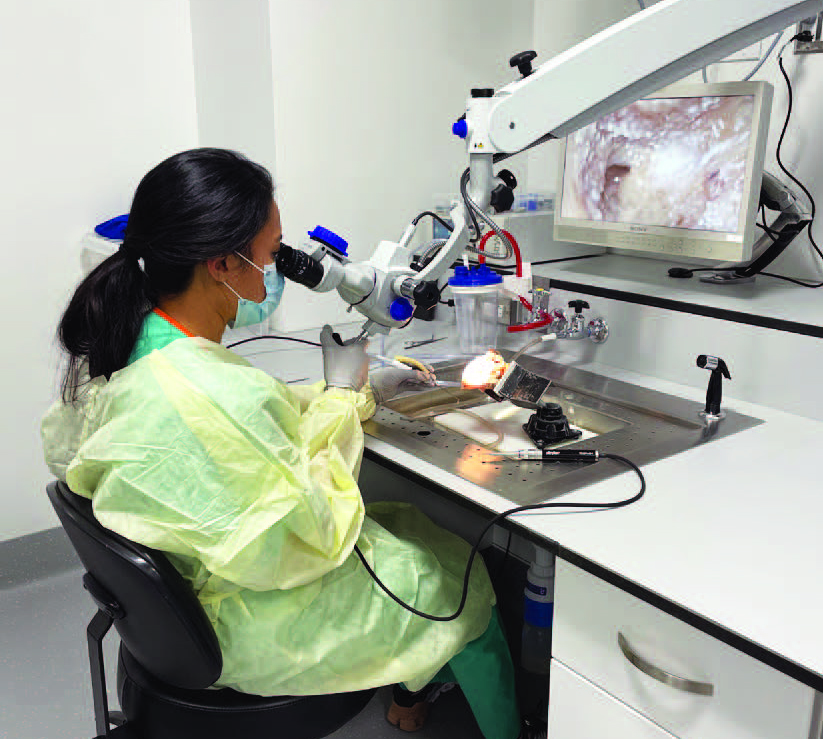U.S. News has consistently rated the department among the top otolaryngology programs in the United States since 1990. “Best Doctors”, an online database of peer evaluated physicians, has consistently included members of our faculty in its database.
First Magnet Hospital in Iowa
Inaugurated in February 2000, the Department of Otolaryngology–Head and Neck Surgery is located on the second floor of the Pomerantz Family Pavilion, University of Iowa Hospitals and Clinics.
Covering an area of 40,000 square feet, the facility offers 29 exam rooms spread over four clinical specialty areas: Otology/Neurotology, Pediatric Otolaryngology, General Otolaryngology/Rhinology and Facial Plastic and Reconstructive Surgery.
Exam rooms for each of the specialty areas are specifically equipped for the needs of that specialty.
Otology/Neurotology rooms all have ceiling mounted microscopes, while Pediatric rooms are softened by the inclusion of activities and games for children. The new Facial Plastic and Reconstructive surgery clinic is designed as a “clinic with a clinic” in order to streamline the patient experience and to offer a more private waiting room area.
For minor procedures patients have immediate access to our surgicenter fitted with state of the art equipment. The surgicenter provides the department with the flexibility it needs to perform smaller procedures and biopsies without having to arrange time in the Main Operating Room suite.
We have an additional 35,000 square feet of dedicated research space that support the research goals of our investigators–this includes the Center for Auditory Regeneration occupying the fifth-floor of the Carver Biomedical Research Building. Directed by Bruce Gantz, MD and Richard Smith, MD, the center offers a unique environment for multidiscplinary research into new treatments for permanent inner ear diseases and disorders that cause hearing loss and deafness. This work complements UI expertise and innovation in cochlear implants, including brain stem implants and short electrodes for high frequency hearing loss.
